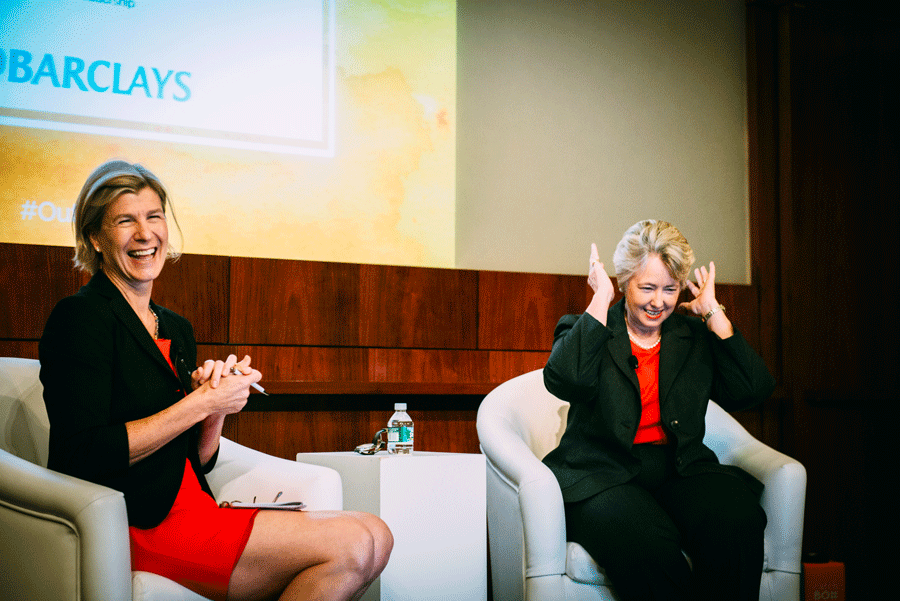Barclays hosted the third annual OutNEXT Global Summit at its headquarters in New York last week. The Summit convened nearly 200 emerging LGBT+ leaders (from more than 10 countries) selected by Out Leadership member companies to participate in two days of leadership development programming.
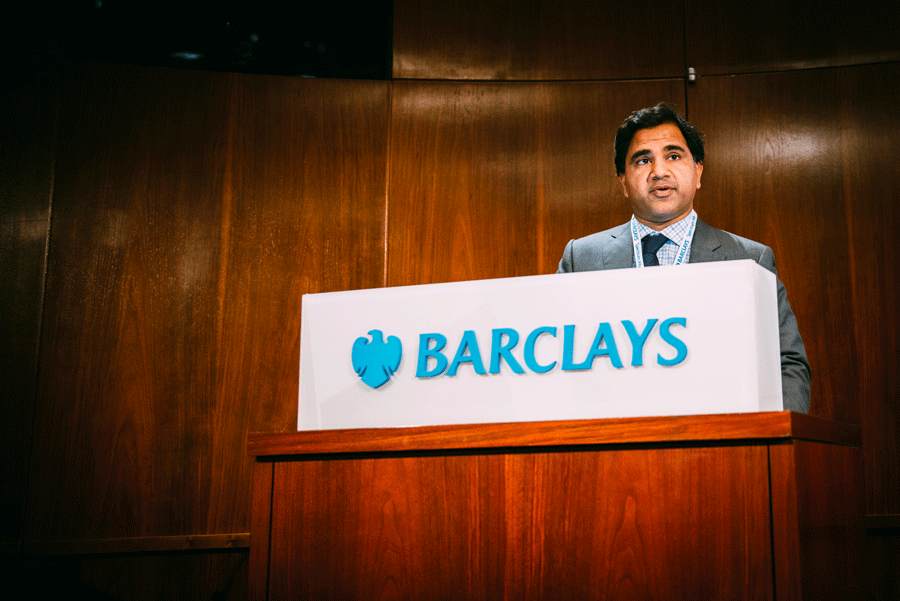
Anil Atluri, Managing Director, Head of Macro Distribution, Americas and Global Head of FX and Commodities Distribution; Executive Sponsor, Spectrum Americas, Barclays, kicked the Summit off by noting Barclays’ longstanding support of LGBT+ inclusion, and introduced a video introduction recorded specifically welcoming participants by Jes Staley, Chief Executive, Barclays.
“Being an Ally, and a very visible one given my role here, means that I can understand the value that diversity of thought brings to Barclays,” Atluri said. “Visible Allies are important.”
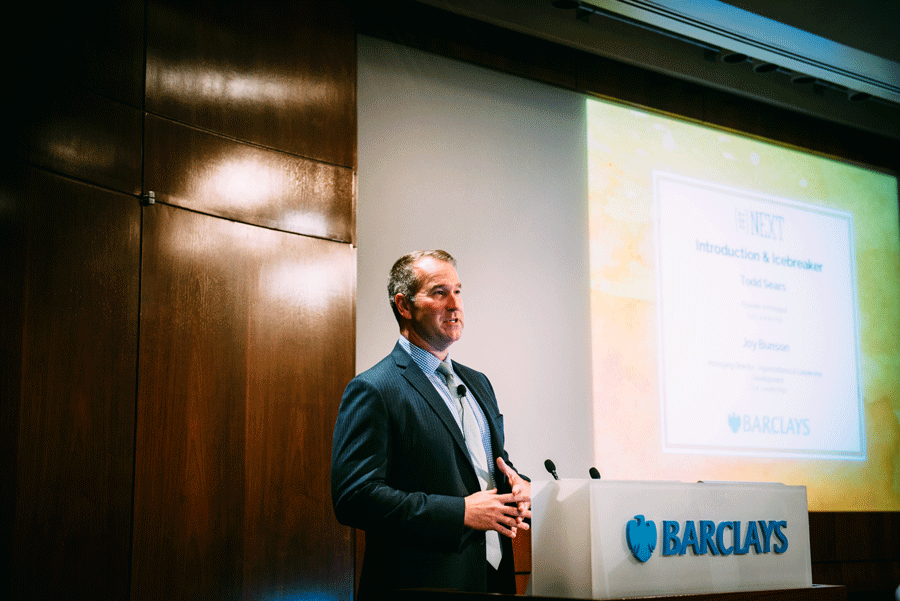
Todd Sears, Founder & Principal, Out Leadership introduced the program and placed it in historical context. Reflecting on the challenges the last year has posed for LGBT+ people around the world, including the horrors of Orlando, Sears reminded participants of the resilience the community has demonstrated against adversity in the past: “The power we have as a community is tremendous. And I truly believe that all of you, by owning your difference and choosing to leverage it, you have an advantage. I call it a ‘gayvantage’: If you actually embrace your identity and your access to this community, it’s incredible. Our community has something valuable, something unique. The experience of being different has taught us empathy, and that’s not something that all of your colleagues will always have.”
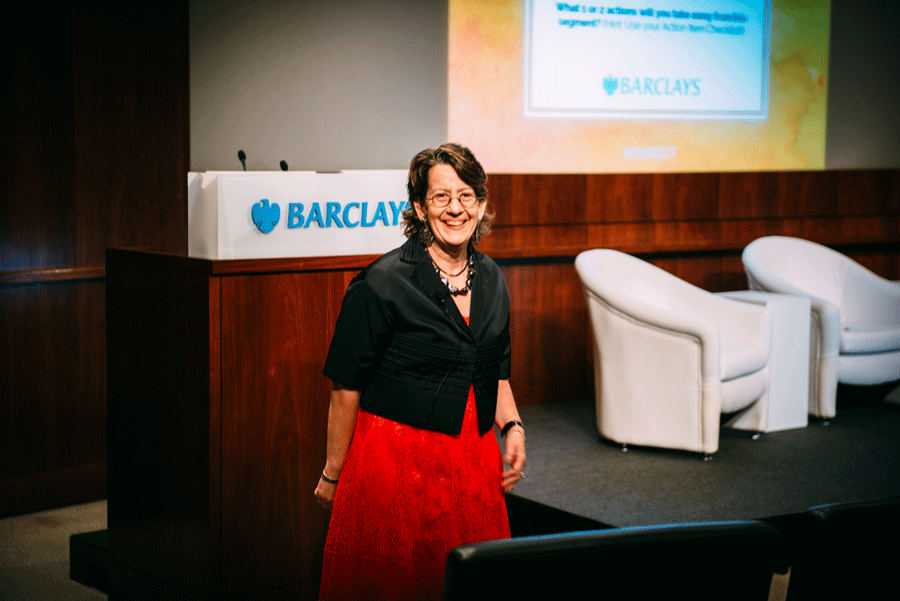
Joy Bunson, Managing Director, Leadership and Organizational Development, Out Leadership, served as “Navigator” for participants throughout the Summit. She began by emphasizing that every OutNEXT participant had the opportunity to discover things about their peers in the cohort: “This is a diverse community and as a leader within it there are lots of opportunities to be an ally. You are all an incredibly talented and interesting group and I hope you get the chance to know each other at a level that is way below the surface.”
Heidi Arthur, Senior Vice President, Group Campaign Director, Ad Council, and Daniel Diez, EVP, Global Chief Marketing Officer, R/GA, joined the Summit to share some stories behind the development of the “Love Has No Labels” campaign.
“I still cry a little when I see that,” said Arthur. “You just keep having these wonderful little moments where you don’t see what you expect. It starts to reinforce this message that we all have a little bit of inherent bias. It was a way to confront peoples’ inherent bias in a way that’s positive and uplifting.”
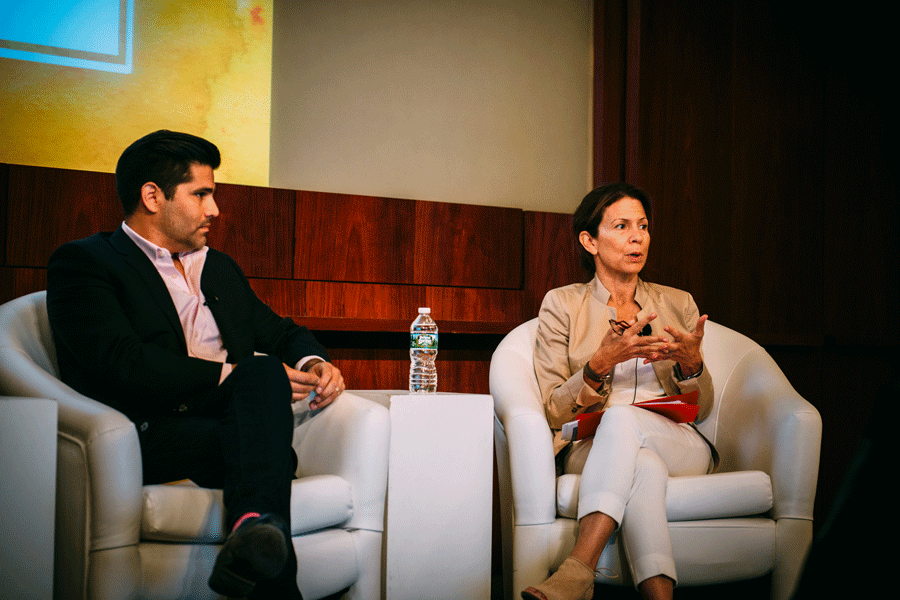
Diez shared a crucial insight for participants: “We never in our wildest dreams imagined it would be this successful: it was the number two most successful public service announcement in history. Because we were caught by surprise we didn’t leverage it as much as we could have. One of the things of being a great leader is planning for your success: the big lesson for us was to be sure that when you capture peoples’ attention, you do something amazing with it.”
One of the key elements of this year’s OutNEXT Summit was a Social Impact Challenge, in which participants worked together to propose solutions to issues currently hotly debated within LGBT+ inclusive businesses, including the role of intersectionality, trans inclusion, and navigation of religious and legislative issues.
Speaking before the beginning of the challenge, James Lopata, Executive & Entrepreneur Coach, InnerOvation, noted: “I judge a lot of pitch contests. People have a set idea and they stick with it, and you’re bound to fail. One of the most important parts of the innovation process is becoming comfortable with failure.”
Lauren Baer, Senior Policy Advisor and Deputy Speechwriter to Samantha Power, U.S. Department of State, then kicked off the Challenge, moderating a panel on the Future of the LGBT+ Movement, which convened three leaders with distinctly personal experiences of activism for a wide-ranging discussion.
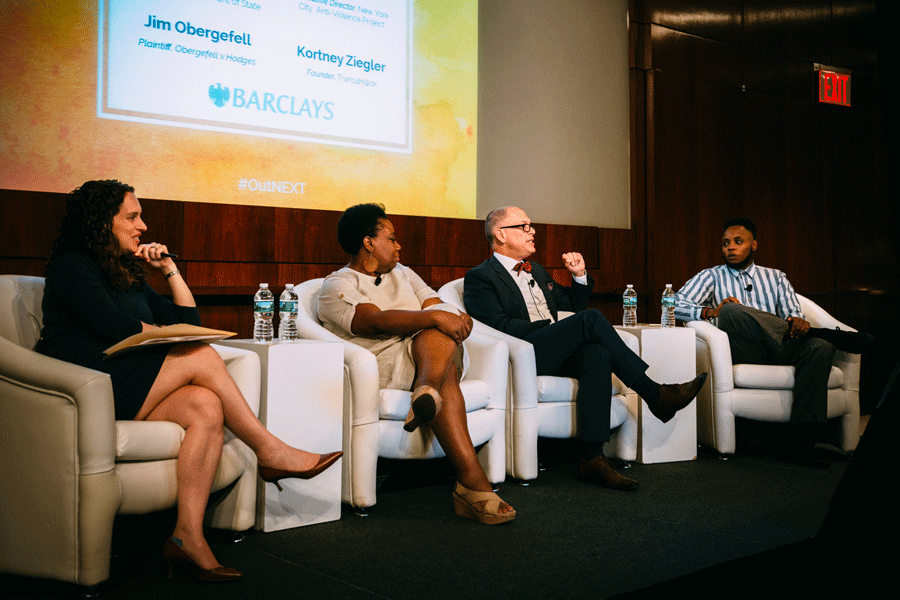
Jim Obergefell, the plaintiff in Obergefell v Hodges, the marriage equality decision, pulled no punches when asked to set priorities: “Our transgender siblings, that’s the most vulnerable group. The fear I felt after Orlando – I realized that this is what members of the transgender community feel every single day. Until recently I had no transgender friends. Thanks in part to technology, I’ve been able to make an effort to know transgender people. I’ve sought out situations where I am in the minority. I’ve learned so much by surrounding myself with people of color, with transgender friends. There are people out there whose lives are different than mine, and they deserve everything I have. We need to recognize that Allies aren’t just from outside the LGBT community; we need to become allies of the people who are different from us, within the community.”
Kourtney Ziegler, Founder, Trans*H4ck, also argued that the intersection of technology and LGBT+ identity has a unique power: “Technology saved my life. If it wasn’t for YouTube and seeing the stories of little 12 and 13 year old trans boys, I wouldn’t be sitting here today. The really life-saving thing about technology is we can use it to make our lives better, to form different kinds of connections that are impossible in so many ways. We have all these technologies – how can we use them to empower trans people?”
Beverly Tillery, Executive Director, New York City Anti-Violence Project, noted that sometimes the weight of big problems can get in the way of creative solutions: “We don’t always have to be thinking about the biggest thing that we can do, we can be thinking about what we can do right now, that’s right in front of us.”
Before the participants left to work on their challenges with their groups, Out Leadership’s Todd Sears and Barclays’ Mark Q. McLane gathered the room to participate in a group photo – “the biggest group of LGBT+ emerging leaders in a selfie ever…”
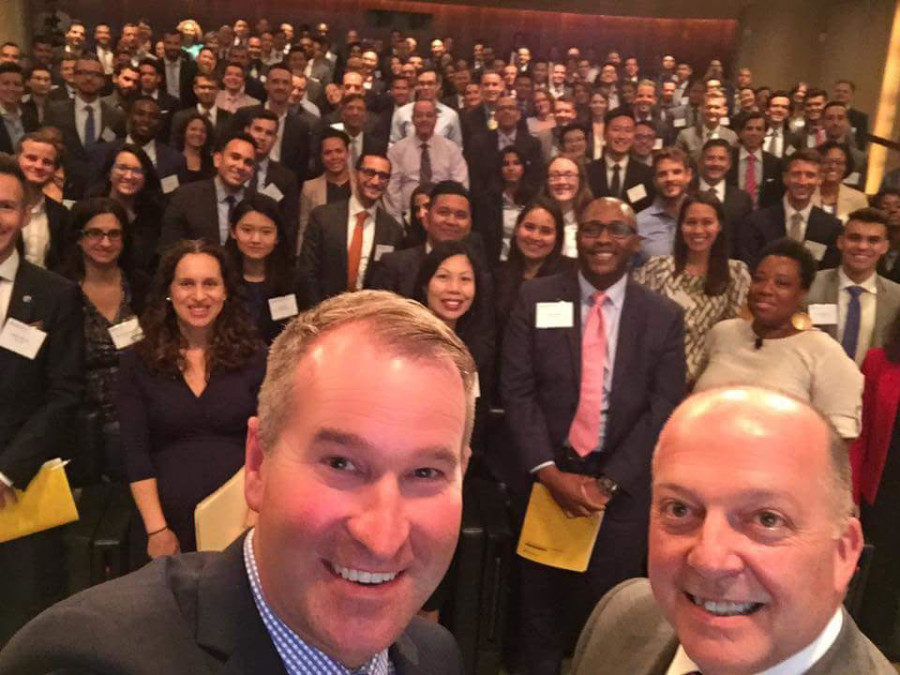
As the first day drew to a close, Mark McLane, Managing Director, Global Head of Diversity & Inclusion, Barclays, participated in a fireside chat with Bess Hepworth, Partnerships and Community Manager, APAC.
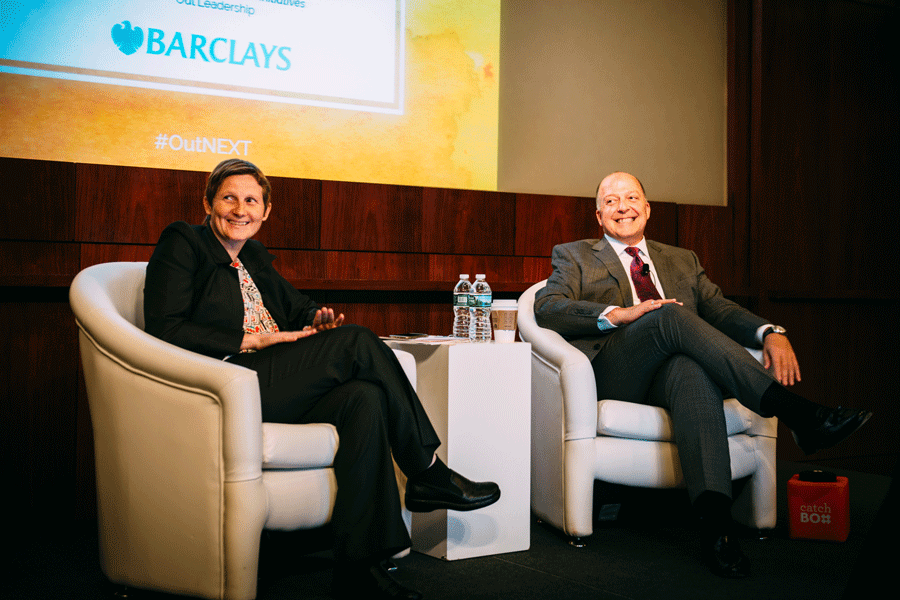
“You don’t realize how much privilege you have until it’s taken away,” McLane noted. “I’ve had a different journey than many. It wasn’t until I came out that I realized my advantage had been taken away. I could play the pronoun game like nobody’s business. But claiming my identity at work means that now I can claim other identities like: Chief Gay Officer. Gay leader. Partner. Uncle. Banker. And I can be more equitable in my role because people know where I stand. There is almost this fear in D&I that you cannot be too aligned to one community or another, but I think that’s an error. We have 6000 people around the world. I don’t want everyone to try to do everything. That would make us a mile wide and an inch deep. I want us to be narrow and expert.”
The day at Barclays concluded with presentations from the four finalist groups of the social impact challenge. In the end, the team from the challenge on religious opposition to LGBT rights prevailed: Mustafa Al Niama of Goldman Sachs, David McCann from ColorZen, Harrison Otterbein of BNY Mellon, Ethan Pan from JPMorgan Chase, and Karen Urie-West of Vanguard.
After a fulfilling and impactful day, participants headed downtown to Stone Street in the Financial District for a reception hosted by PwC. Jeff Bharkhda, Financial Due Diligence Partner, shared remarks and OutNEXTers got to know one another in a more casual networking setting.
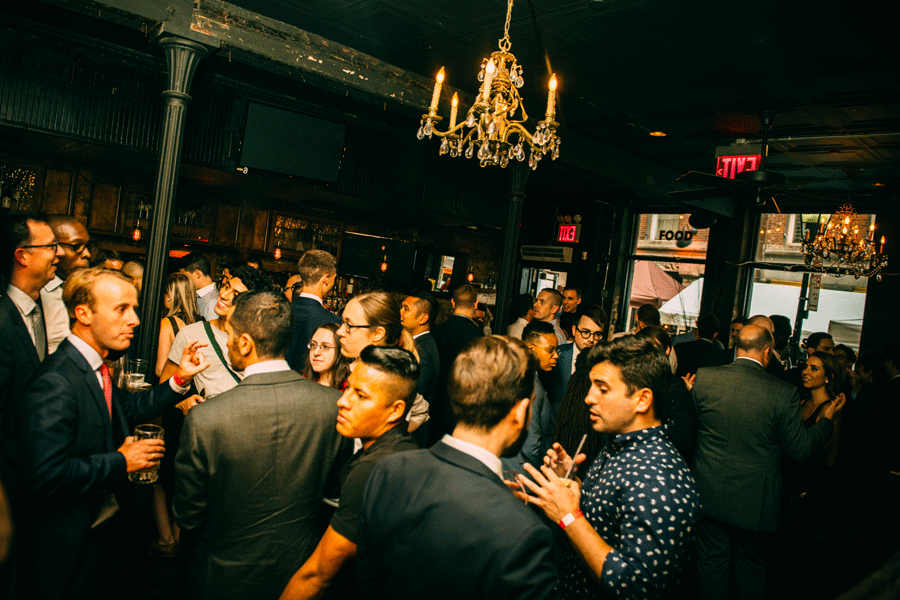
Day two began with OutNEXT alum Nicolas Washington, Audit Manager, KPMG LLP, sharing how impactful the experience he had at the Summit in 2015 was. He encouraged participants to really take their “Action Item Checklists” seriously: “I think it really speaks to the excellence and design of this program that throughout the program you have time to sit and reflect on what you’re learning.”
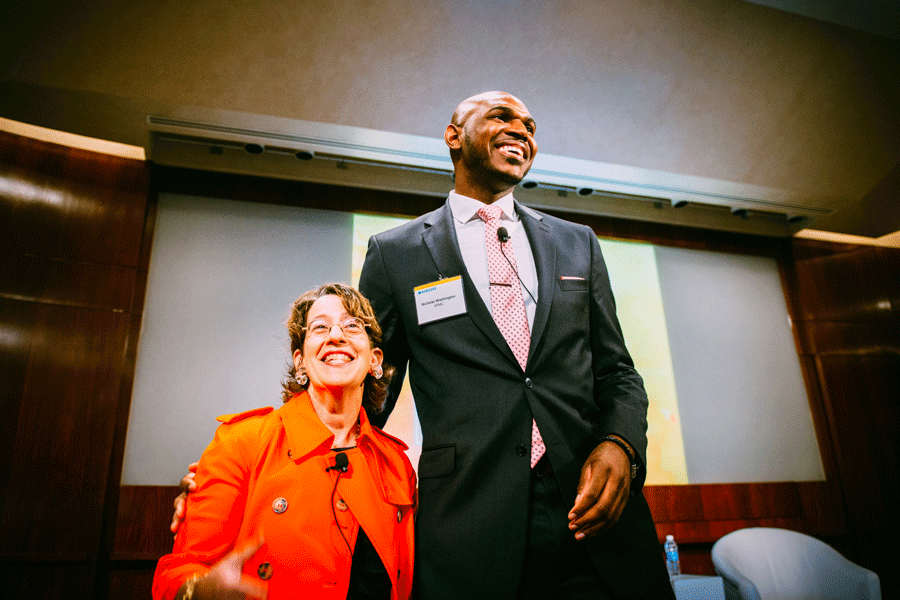
“I tend to be cursed with the plague of what I call unintended visibility,” Washington noted, wryly. “But early last year the department chair for the LGBT network reached out to me and said, ‘there’s an opportunity for you to be one of the co-leaders of the chapter.’ I struggled internally with willingly accepting a role that gave me visibility I did not really want, but to be the leader I wanted to be I would have to be comfortable with the attention. And I reflected back on one of the things I wrote in my Action Item Checklist: “REFUSE TO BE EMBARRASSED.” I had such a visceral reaction to hearing those words that I immediately wrote them down. And I did decide to step up to leadership of our chapter.”
Next, David Lawenda, US Head of Global Marketing & Sales, Facebook, engaged in a dialogue with his longtime executive coach Rabia de Lande Long, Chartwell Advisors.
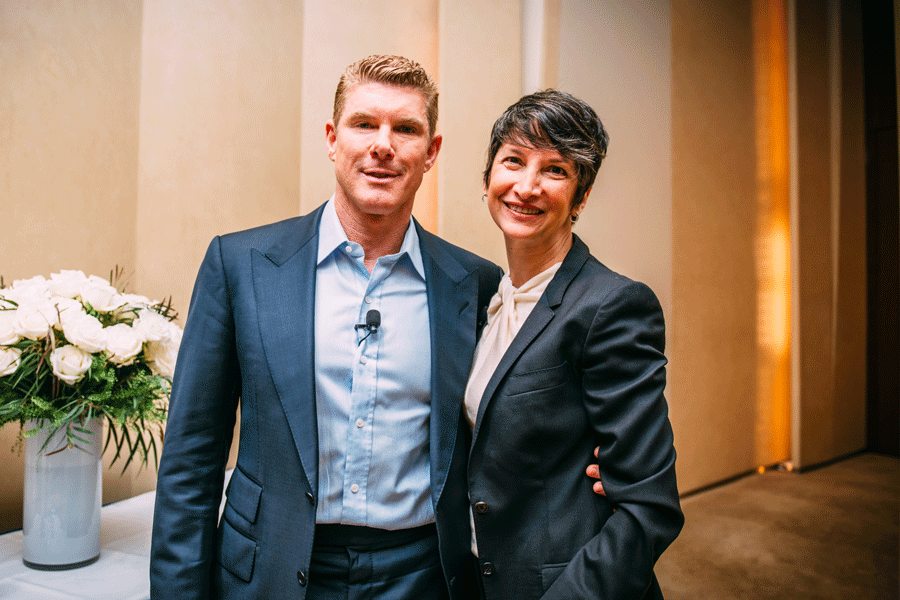
“Leaders can’t be leaders unless people follow them,” Lawenda emphasized. “It’s hard to get people to follow you if they don’t know who you really are. I spent several years being a leader and not being my authentic self. It’s not just my authenticity regarding my sexuality, I’m not afraid to be vulnerable. I show my vulnerability, and it comes very naturally to me, I just am who I am. But it wasn’t always like that: I used to work hard to hide that vulnerability. I’m a better leader now that I don’t.”
Todd Sears then engaged Billy Porter, of Broadway fame, in a no-holds-barred conversation about his long road to success on his own terms, during which Out Leadership’s Global Advisory Board member Lord John Browne joined the audience.
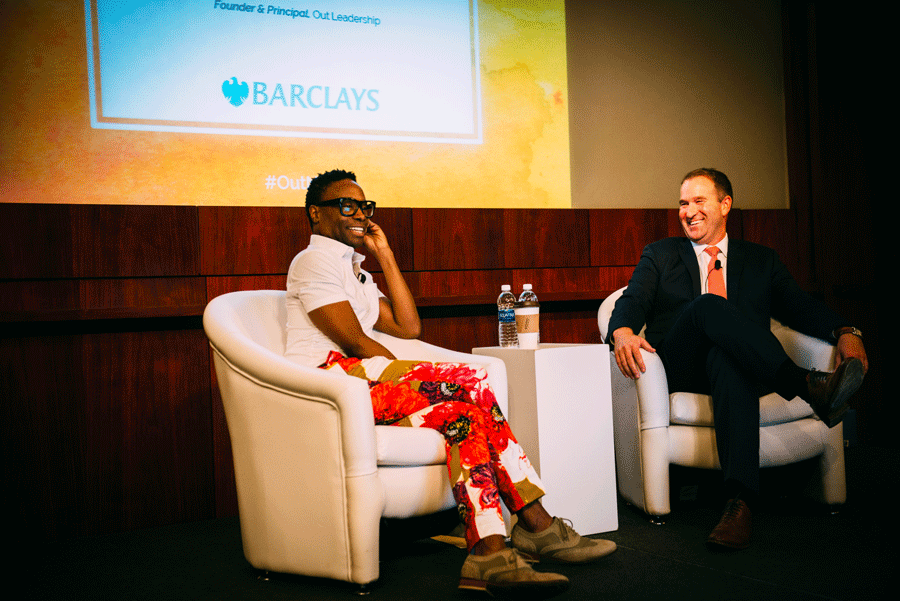
“There was nothing but rejection from my community, my family, my church,” said Porter. “The only thing that would remotely accept me at all was the theater so I focused on that. I was singularly focused for so many years on succeeding. You know, it was interesting to me because it was something about being an artist in general that was simultaneously empowering while at the same time really challenging in terms of being a black gay man in the business, and I’ve fought for a long time for my spot, for my place. And the thing that was right for me, it did not exist. I had to create the role, create the archetype.”
Following Porter’s conversation OutNEXT participated in a hands-on workshop about authentically selling themselves in the workplace, led by Mary McCann, Director, NYU Tisch Schools of the Arts and the Atlantic Theater Company and Lorielle Mallue, Director of Conservatory Training & Academic Affairs, Atlantic Acting School. The workshop emphasized how the important acting techniques of reading the room and compelling communication translate from theatre to business.
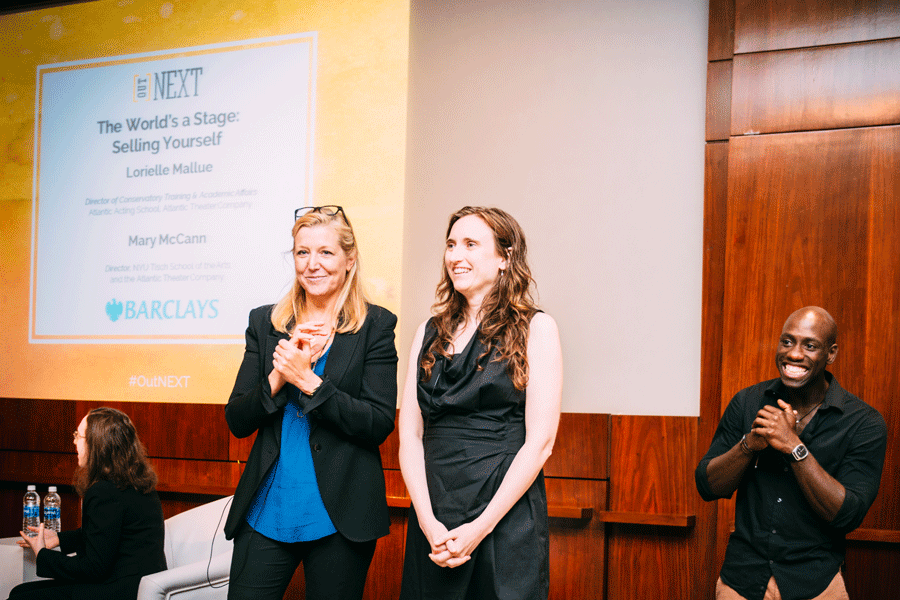
Tesha Gary, Telecommunication Vendor Manger, Bloomberg LP, introduced the next section, focusing on the importance of visibility: “I’m not a speaker. I’m a technology person. But I noticed that there was not a leader that looked like me at my company. And people would come to me in private and say thank you. I go home exhausted every day, I force myself now to be that person and to be out. Maybe I won’t always say the right thing, but at least you know there’s someone like you here.”
Ben Brooks, founder and CEO of PILOT, continued the theme: “Your career and your job are not the same thing. You have to think much more broadly if you want to become an executive over time, to make yourself much more interesting. You talk about bringing your whole self to work, that’s not just your demographics, it’s also your other skills, your passions, your interests. Your professional brand and your personal brand are the same.”
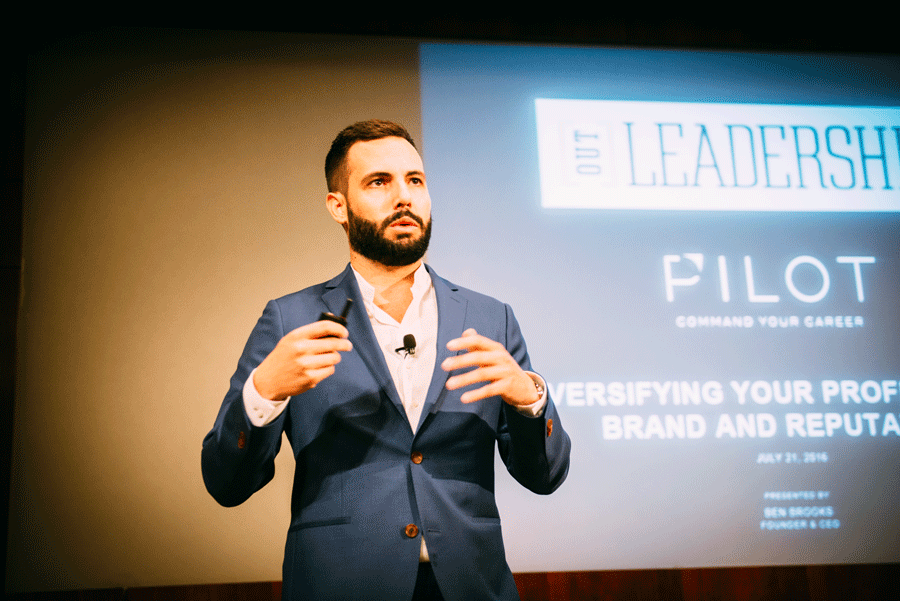
Participants then had the opportunity to engage with senior leaders from Barclays business units as well as from Out Leadership member companies and partner organizations in intimate mentorship sessions, during which they had the opportunity to put some of the insights from an inspirational morning into action.
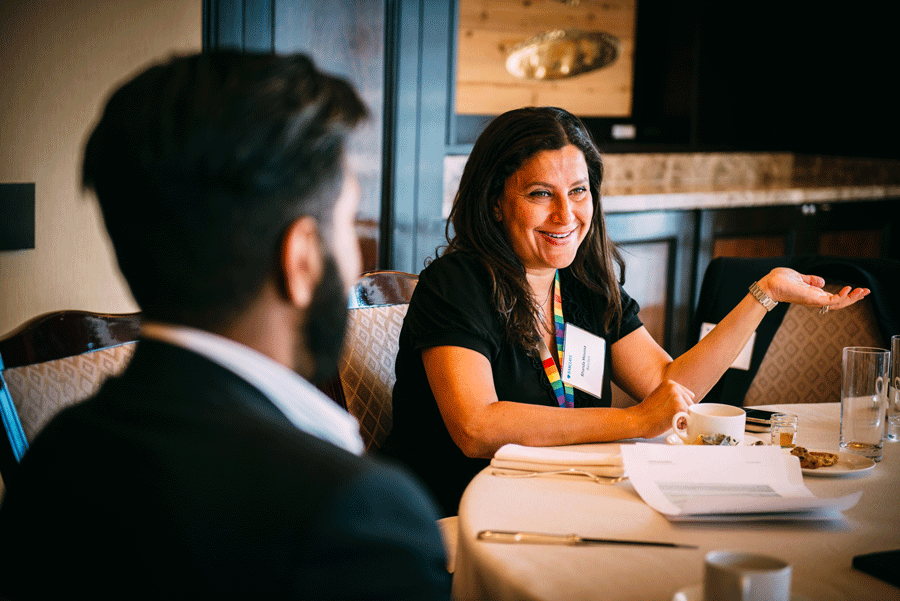
Darice Henritze, Partner, International Corporate Services, KPMG LLP, led a discussion on how to create “actionable” Allies: “If you want people to be an ally, you need to understand what that means to them. There’s going to be a little fear for them. It takes patience and education and bravery to get past that. The question you have to ask yourself, if you’re trying to be an ally or get an ally, you have to think about what the mutual benefit is. You have to give them the imperative for why they’re doing it.”
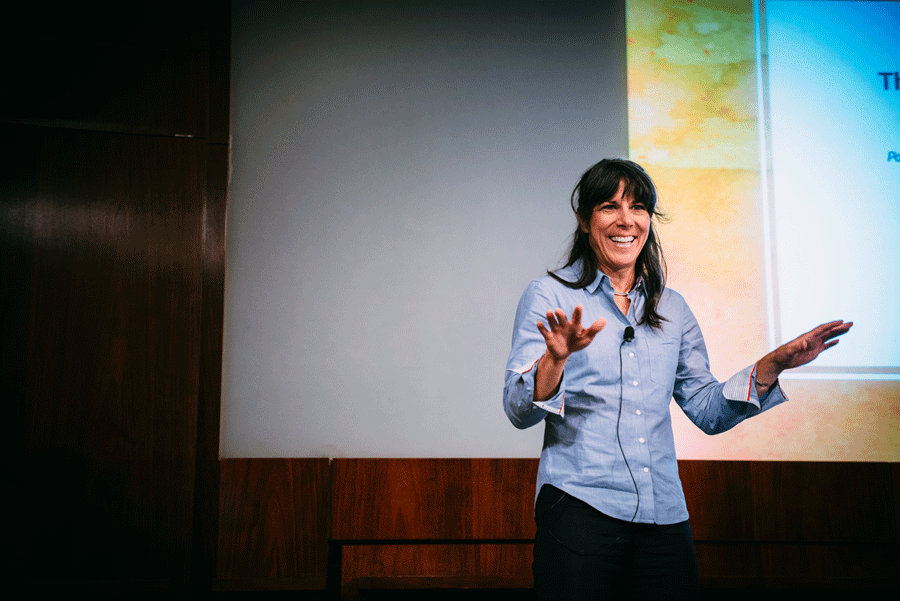
Annise Parker, former mayor of Houston, concluded the Summit with a keynote address, and in conversation with Stephanie Sandberg, Managing Director, Advisory & Client Services, Out Leadership. Sharing her story, Parker touched on many of the key themes of the Summit: the power of claiming every aspect of your identity, the power of being out, and the importance of developing your leadership potential.
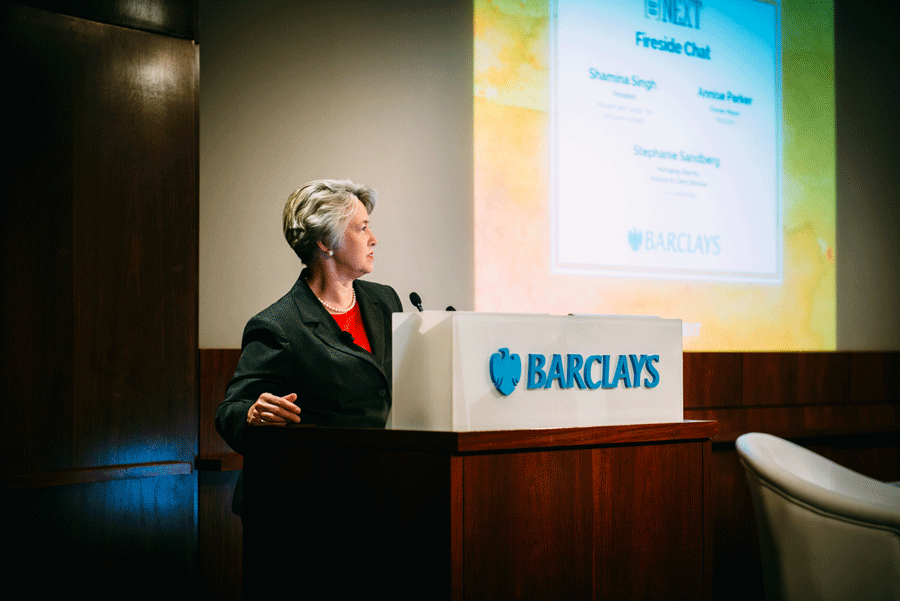
“In the 1980s I was arguably the most visible lesbian activist in Houston. I would be on the evening news, and then I’d go to the oil company the next day and pretend I hadn’t said anything and nobody asked about it. I wasn’t in the closet, but it was definitely don’t ask, don’t tell. It wasn’t enough,” Parker noted. “Before you change the laws you have to change hearts and minds. Each of you has to be a member of one of the national LGBT+ organizations. You need to commit to coming out when and where you can, not just professionally but personally.”
“You have been selected as leaders by your companies,” Parker concluded. “They didn’t send you here to learn some new information that would benefit the company. They sent you here to polish your leadership skills in the broader context. Your employers expect you to go back to be leaders in the world.”
